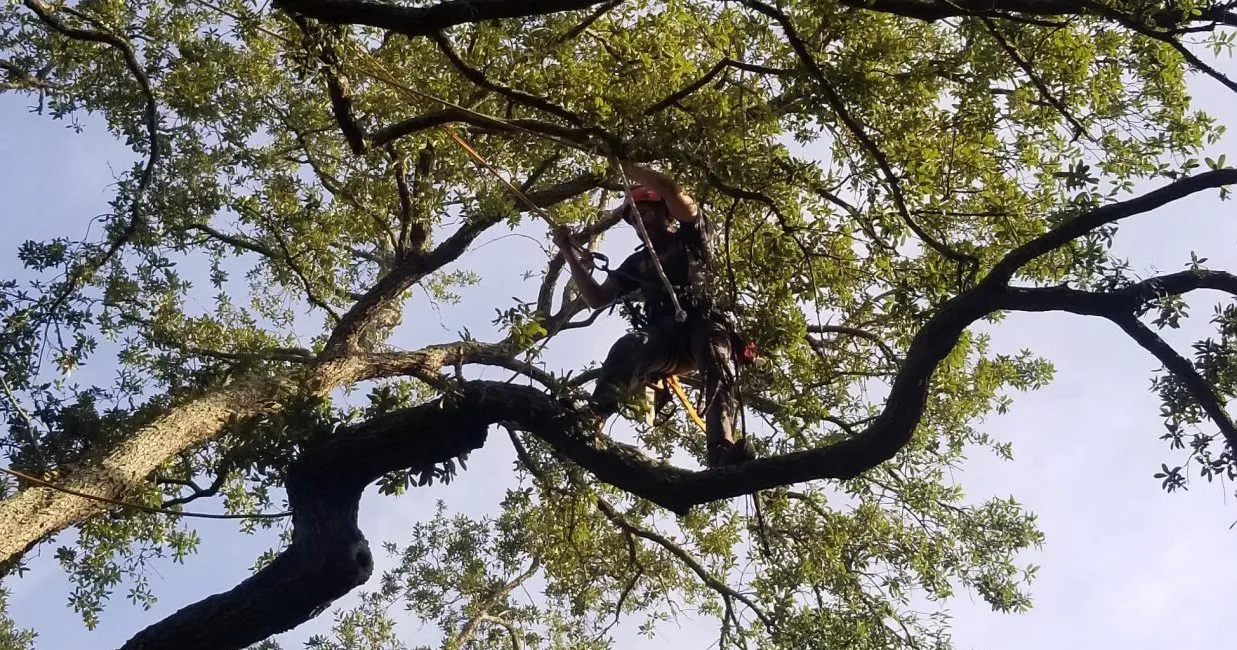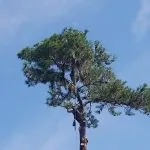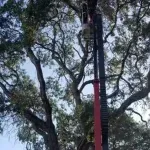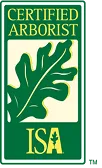Efficient tree care in Jacksonville is not just about trimming or removal. Spraying plays a major role in keeping your trees disease-free, pest-resistant, and thriving year-round. Florida’s humidity and long growing seasons make it necessary.
Here’s the thing. If you spray at the wrong time, you waste money. If you skip spraying altogether, your trees can get hit hard by mites, aphids, scale insects, and fungal diseases that quietly weaken their health.
This guide breaks down the ideal seasonal spraying schedule for Jacksonville’s climate. We’ll cover the “why,” “when,” and “how” so you can plan smart and protect your trees long before visible damage shows up.
Why Tree Spraying Is Essential for Jacksonville’s Climate
Jacksonville trees face a unique mix of challenges:
- High humidity and rainfall that fuel fungal growth
- Extended warm seasons that allow pests to reproduce quickly
- Sandy soils that stress certain tree species, making them more vulnerable
- Hurricanes and storm damage that open wounds for infections
Spraying provides a layer of defense. It’s not just for appearance, but for long-term tree health. The right treatments can prevent issues like:
- Sooty mold on crepe myrtles
- Whitefly infestations on palms
- Scale insects on magnolias
- Leaf spot diseases on oaks and maples
Jacksonville Tree Spraying Schedule: Season-by-Season Guide
Jacksonville’s warm, humid climate allows trees to thrive, but it also creates perfect conditions for pests and fungal diseases. A consistent spraying schedule throughout the year helps protect your trees from damage and keeps your landscape looking healthy and balanced. Here’s what to focus on each season.
Winter (January to February)
Focus: Dormant oil spray for overwintering pests
Why it works: When trees are dormant, oils can safely coat the bark and branches, smothering insect eggs and larvae before they hatch. This prevents early-season infestations without harming new growth.
Best for: Oaks, hollies, fruit trees, and magnolias
Pro Tip: Winter is also a great time for pruning and inspections since pest activity is low and tree structure is easier to assess.
Early Spring (March to April)
Focus: Fungicide and insecticide application
Why it works: As temperatures rise, trees begin producing new leaves and buds. Applying fungicides and insecticides early protects tender new growth from fungal spores, aphids, and leaf miners.
Best for: Flowering trees, palms, citrus, and maples
Pro Tip: Combine spraying with deep fertilization to help trees recover from winter stress and strengthen their defenses for the growing season.
Late Spring to Early Summer (May to June)
Focus: Insect control for aphids, mites, and caterpillars
Why it works: Pests become more active as humidity increases. Early treatments help prevent large infestations that can cause defoliation and sap loss.
Best for: Crepe myrtles, elms, and sweetgum trees
Pro Tip: Monitor for early signs of webbing, distorted leaves, or sticky residue (honeydew), which indicate pest presence.
Mid-Summer (July to August)
Focus: Fungus prevention and systemic insecticides
Why it works: Frequent rainfall and high humidity can trigger fungal outbreaks such as powdery mildew and leaf spot. Systemic insecticides provide long-lasting protection by circulating within the tree’s system.
Best for: Live oaks, palms, and pines
Pro Tip: Keep mulch away from the trunk and ensure proper drainage to reduce fungal growth and root stress.
Fall (September to November)
Focus: Scale control and pre-winter disease prevention
Why it works: As temperatures cool, late-season pests like scale insects become active again. A well-timed treatment reduces their population before trees enter dormancy.
Best for: Evergreen trees, ornamental shrubs, and fruit trees
Pro Tip: Pair your fall spray with a nutrient-rich soil treatment to help trees store energy for winter.
Common Tree Spraying Mistakes Homeowners Make
- Spraying too late: Waiting until pests are visible means they’ve already caused damage.
- Using the wrong product: Different species and conditions require specific treatments.
- Over-spraying: Too much product can harm beneficial insects and scorch leaves.
- Skipping follow-ups: Jacksonville’s long growing season demands consistent care for best res
Pro Tip
“Spraying is most effective when paired with pruning and soil care. Healthy roots support a healthy canopy, and preventive care always beats emergency treatment.”
DIY vs. Hiring a Professional for Tree Spraying
You’re fine on your own if:
- You’re spraying small ornamental trees or shrubs
- You’re using horticultural oils or light fungicides
- You’re trained in proper dilution and application techniques
Call a professional when:
- The tree is large or difficult to reach
- You’re dealing with stubborn pests (scale, whiteflies, borers)
- You want systemic treatments or certified arborist input
What Makes Jacksonville Tricky
Jacksonville’s combination of heat, salt air, and unpredictable storms makes it one of the most challenging places to manage tree health.
- Near the coast, salt spray can weaken foliage. That stress makes trees more vulnerable to disease and pests.
- Inland, clay-heavy soils trap moisture which promotes rot, especially after summer storms.
- Tree pests in Northeast Florida often survive mild winters, which means more generations of bugs per year.
Solution: Timing is everything. In this region, it pays to use preventive sprays before problems start. Having a certified arborist track the climate and spray cycle gives your trees the best defense.
Getting Ahead of the Curve
The most effective tree care starts before you notice any visible signs of trouble. By the time leaves begin curling, yellowing, or dropping, the damage has often already spread beneath the surface. Treating symptoms after they appear means you’re addressing the aftermath rather than preventing the problem.
A proactive spraying schedule functions much like a vaccine for your trees. It strengthens their natural defenses against insects, fungi, and diseases before infestations take hold. Regular preventive treatments help trees maintain vigor through seasonal stress, especially during Jacksonville’s humid, pest-heavy months.
Trees that receive early spring treatments often require fewer corrective sprays later in the year because emerging pests and spores are controlled before they multiply. This forward-thinking approach also reduces the risk of emergency removals, which are far more costly and disruptive than routine maintenance.
If your goal is to preserve long-term tree health and stability, think of a structured spraying schedule as your annual wellness plan for your landscape—a small, consistent investment that prevents bigger problems down the road.
The Cost of Neglect
Let’s get real. Ignoring your tree’s health doesn’t just risk the tree. It risks your home’s value, your family’s safety, and your wallet. One untreated pest issue could turn into a costly removal job that damages your lawn or landscape.
Compare that to the cost of a simple seasonal spray. A few minutes of proactive care each season can prevent hundreds (sometimes thousands) in emergency tree work. Think of it as preventive maintenance, just like an oil change or HVAC tune-up.
If you’re unsure what your trees need, a quick consultation can make a big difference. Most pros can spot issues in seconds that homeowners don’t catch for months.
What Local Homeowners Ask (FAQs)
Do all trees need to be sprayed?
Not all trees require spraying, but those that are more prone to pests or growing in stressful conditions—such as compacted soil, poor drainage, or limited sunlight—benefit greatly from regular treatments. Preventive spraying helps maintain tree health and prevents small issues from turning into expensive infestations or disease outbreaks.
Will spraying harm birds or pets?
When applied by certified professionals, tree sprays are formulated to be safe for both wildlife and pets. Modern products dry quickly and are targeted to affect specific pests without harming beneficial insects or animals. It’s still wise to keep pets indoors until the spray has completely dried and to discuss any concerns with your tree care provider.
Can I combine fertilizing and spraying?
Yes. Many professional tree services in Jacksonville offer combination treatments that include both nutrients and pest or disease control. These blended applications save time, reduce soil disturbance, and ensure your trees receive the right balance of protection and nourishment throughout the growing season.
How long do sprays last?
Most treatments remain effective for 30 to 90 days, depending on rainfall, product formulation, and the overall health of the tree. Trees under heavy pest pressure or during the wet season may need more frequent applications for consistent protection.
Is tree spraying safe during the rainy season?
Yes, but timing is key. Professionals use systemic sprays that are absorbed through the tree’s vascular system, providing long-lasting protection even after rainfall. They also schedule applications during dry windows to ensure maximum effectiveness and avoid wash-off.
Need Help with Tree Spraying in Jacksonville, FL?
Bushor Tree Surgeons has over 62 years of local tree health care experience. Our certified arborists create custom seasonal spray plans using environmentally responsible treatments, tailored to your trees and your yard.
We’re here when you need advice, treatment, or just a walkthrough of your tree health. Contact us for a free on-site consultation.







